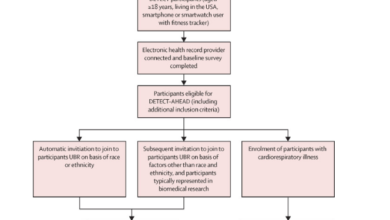Lecanemab: A Potential Preventive Measure

In the ever-evolving landscape of medical breakthroughs, Lecanemab, commonly known as Leqembi, has emerged as a groundbreaking drug in the fight against Alzheimer’s disease. Having secured FDA approval for treating early-stage Alzheimer’s, it has been a game-changer for patients. However, what’s capturing the attention of researchers and medical professionals alike is the prospect of leveraging Lecanemab to prevent Alzheimer’s altogether.
READ: Marijuana Consumption Associated with Increased Cardiovascular Risk
Lecanemab Journey So Far
Lecanemab, manufactured by Eisai, has been on the market for ten months, offering a glimmer of hope for those grappling with the challenges of Alzheimer’s. The drug, administered through intravenous infusion, has showcased significant efficacy in mitigating symptoms associated with early-stage Alzheimer’s disease. But now, researchers are setting their sights on a broader horizon – the prevention of Alzheimer’s itself.
A Weekly Dose: A Leap Towards Accessibility
Recent findings by Eisai have shed light on a potential shift in the administration of Lecanemab. A weekly dose, consisting of two injections, has demonstrated effectiveness comparable to the currently approved intravenous version. Dr. Reisa Sperling, the Alzheimer research and treatment director at the Brigham and Women’s Hospital, expresses optimism about the future ease of treatment. “That’s much easier than giving the IV infusions that we do now. So that gives me great hope that in the future we would be able to do this much easier for people, and people who don’t have memory problems can give themselves shots at home eventually.”
Eisai’s Bold Move: Seeking FDA Approval
Eisai is not merely content with the current success of Lecanemab. Plans are underway to seek FDA approval for the shot by March 2024. While the drug is presently approved for patients with early Alzheimer’s disease, the potential expansion to preventive use could revolutionize how we approach Alzheimer’s on a global scale.
Unveiling Lecanemab’s Preventive Potential
The core of the ongoing research lies in unraveling Lecanemab’s ability to prevent Alzheimer’s. Joshua Grill, professor of neurobiology and behavior at the University of California, Irvine, expresses the collective hope of researchers, stating, “We hope [to] make breakthroughs in discoveries that change our ability to help people in their lives, prevent them from getting memory problems.” The focus is on recruiting individuals without symptoms but having a family history of Alzheimer’s, a strategic move to delve into the preventive possibilities of Lecanemab.
Simplifying Treatment: A Patient-Centric Approach
The transition to a self-administered shot marks a pivotal moment in Alzheimer’s treatment. Dr. Reisa Sperling’s enthusiasm about patients administering shots at home highlights the potential for increased accessibility. This shift not only simplifies the treatment process but also empowers individuals to take charge of their health, especially those without existing memory problems.
Seeking FDA Nod: A Milestone in Prevention
Eisai’s timeline for seeking FDA approval for the Lecanemab shot is a critical milestone in the journey towards Alzheimer’s prevention. If successful, it not only opens up new avenues for treatment but also sets a precedent for a proactive approach to tackle neurodegenerative diseases.
Conclusion
In conclusion, the journey of Lecanemab from an FDA-approved treatment for early Alzheimer’s to a potential preventive measure is a testament to the relentless pursuit of breakthroughs in medical science. The prospect of simpler administration and the focus on prevention offer a beacon of hope for a future where Alzheimer’s is not just treated but prevented. As research progresses, the anticipation for transformative discoveries in the realm of neurodegenerative diseases grows stronger.




